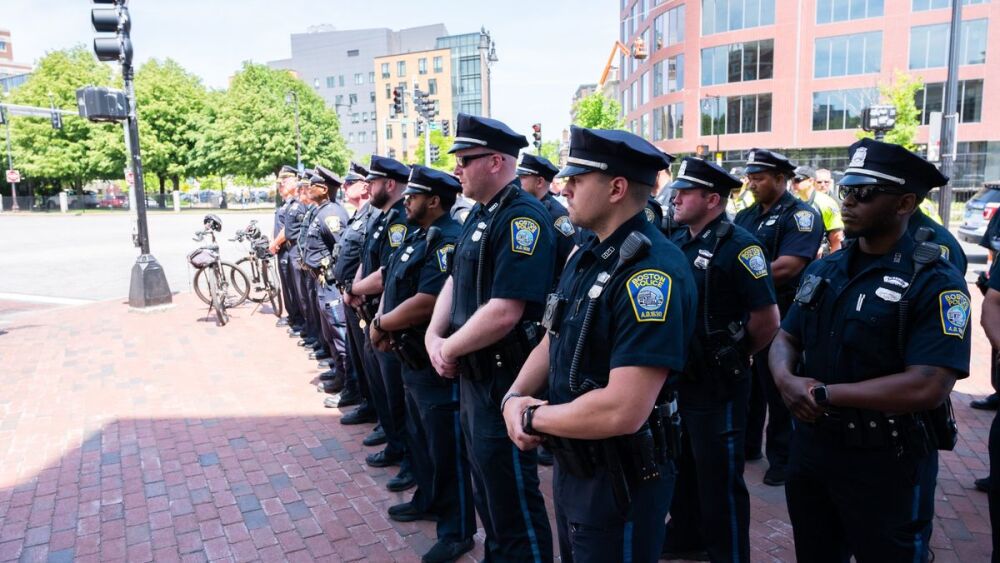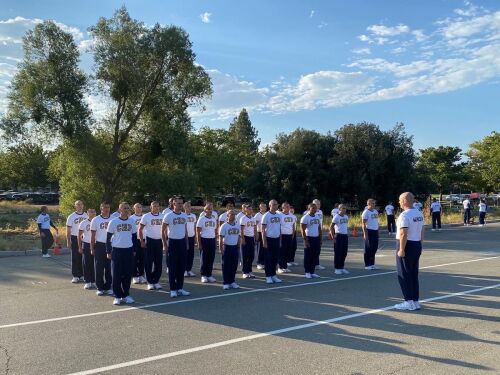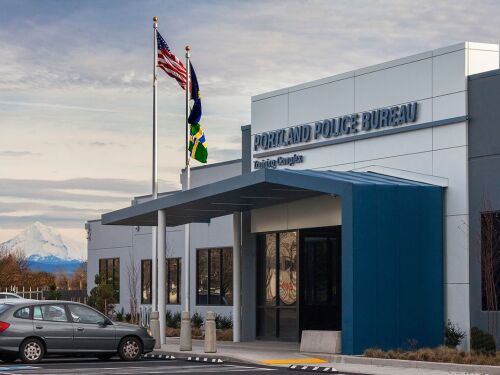By Gayla Cawley
Boston Herald
BOSTON — A Boston city councilor plans to ask the Wu administration to revisit the residency requirement for police officers, and whether easing up on that long-standing policy is a “viable option” to address today’s staffing challenges at BPD.
City Councilor Ed Flynn didn’t elaborate much on what form his request would take, but said the time is ripe for a new discussion on residency in the city, where the cost of housing may be prohibitive to potential officers, particularly young recruits who would be hired at the bottom of the contractual pay scale.
“Maybe we can ease up on residency-related issues for public safety personnel due to the crisis we’re having right now,” Flynn told the Herald, after leading a downtown walkthrough Thursday that highlighted concerns residents and businesses have with violence in the Downtown Crossing and Boston Common areas.
“It’s worth having a conversation and talking to the administration on how we move forward and ensure we have enough police officers in the city,” he said.
The discussion, he said, may focus on the starting salary for new police officers, which Flynn put at roughly $60,000 per year, which may make it difficult for them to “afford to live in the city.”
Boston’s residency requirement for city workers has been in effect since 1976. Under the mandate, potential recruits are required to have lived in Boston for at least a year prior to taking the civil service exam to become a police officer. After an officer is hired, they must live in Boston for at least 10 years.
Flynn, who joined Councilor Erin Murphy in filing a City Council hearing order to discuss staffing shortages at the Boston Police Department , said “it’s time” for the residency requirement to be part of that conversation.
“At this time, it’s important to listen and talk with City Council colleagues and the mayor to determine if this is a viable option to address the significant challenges of recruiting and retention of police officers in Boston,” Flynn said.
Earlier this month, a BPD spokesperson put current uniformed staffing levels at 2,188. Boston Municipal Code mandates that the number of police officers on the force shall, at no time, be less than 2,500, according to the Council hearing order.
While the city’s largest police union, which has been pushing for the repeal or a tapering of the residency requirement, was quick to praise the councilor’s request, Boston Police Commissioner Michael Cox threw cold water on the idea.
“That’s a little bit above my pay scale,” Cox said when asked if he was open to repealing the residency requirement at an unrelated press conference on Friday.
“If that was the answer,” to the department’s staffing challenges, Cox said, “I’d probably be the first to vote and say, hey, we should do that. But there’s no correlation between the residency rule in a major city’s police department and attracting the number of people.”
He added, “There are many, many places that have no residency, that will take people from all over the country, and they are still having trouble attracting people to this field.”
The commissioner said recruitment and retention challenges are more directly correlated with people not wanting to do the job. The issue may stem from criticism directed towards police officers, Cox said, which he sees as being particularly “weird” in Boston, given its status as arguably the “safest major city in America.”
“I can’t think of any other mayor having more success, and, I hate to say, because I can’t even think of any other police commissioner having the kind of statistical success that we have,” Cox said. “But yet, we’re still being questioned on, what are we doing? Why are we doing it? And I think it’s kind of weird.”
Larry Calderone, president of the Boston Police Patrolmen’s Association, the city’s largest police union, disagreed with the commissioner’s assessment that there was no data to support the residency requirement’s impact on staffing challenges.
Not only is the policy turning off young officers from applying, he said, but it is preventing the department from making lateral hires.
“One year ago, Commissioner Cox opened up lateral transfers from outside municipalities for police officers that are fully trained, fully POST certified, to have the opportunity to lateral into Boston,” Calderone said. “We had a little over 60 police officers come to an initial invitation.
“And after they were addressed by a member of the command staff, and the member of the command staff reiterated that they would need to move into the city of Boston and be a resident for 10 years, over 50 people got up and walked out of the room at that meeting that evening,” he said.
Out of the “dozen or so” who remained at the meeting, “we only got three bodies to accept that invitation to become residents,” Calderone said.
The department could get the lateral transfers “tomorrow,” if it wanted to, he said. “The only thing standing in the way is the residency requirement.”
He further pointed to past precedent in the department, citing a city decision in 2022 to waive the residency requirement for 911 operators for a three-year period, to address staffing challenges. The BPPA, he said, would be open to a similar compromise.
Mayor Michelle Wu’s office did not directly address whether her administration would be open to revisiting the residency requirement for officers, choosing instead to focus on efforts to enhance recruitment and retention — by boosting pay and taking steps to reduce mandatory overtime, with the aim of supporting officer health and well-being.
“From major reforms secured through settling a historic contract with the police unions, to organizational reforms delivering more patrol capacity, to graduating the largest and most diverse classes of recruits at the police academy — these steps have been intentional and strategic to attract the best talent and reflect the neighborhoods we serve under the mission of community policing,” Wu spokesperson Jessicah Pierre said in a Friday statement.
“Boston continues to gain national attention for our record low crime, particularly homicides,” the statement continued, “reflecting the great work of our officers, community partners, and city departments.”
©2024 MediaNews Group, Inc.
Visit at bostonherald.com.
Distributed by Tribune Content Agency, LLC.












